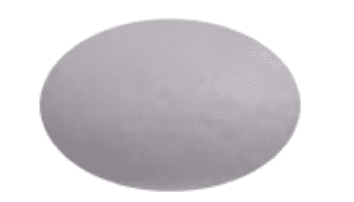Gomekli Side Effects
Generic name: mirdametinib
Medically reviewed by Drugs.com. Last updated on Aug 10, 2025.
Note: This document provides detailed information about Gomekli Side Effects associated with mirdametinib. Some dosage forms listed on this page may not apply specifically to the brand name Gomekli.
Applies to mirdametinib: oral capsule, oral tablet dispersible.
Important warnings
This medicine can cause some serious health issues
Use only as directed.
Tell your doctor if you use other medicines or have other medical conditions or allergies.
Get emergency medical help if you have signs of an allergic reaction: hives, difficult breathing, swelling of your face, lips, tongue, or throat.
Call your doctor at once if you have:
-
eye problems--blurred vision, severe vision problems, including vision loss;
-
heart problems--swelling, rapid weight gain, feeling short of breath, tiredness, fast heart rate, coughing and wheezing; or
-
skin problems--skin rash, peeling, itching, bumps, and redness.
Common side effects may include:
-
headache and tiredness;
-
muscle, joint or bone pain;
-
skin redness, swelling, pain around fingernail or toenail; or
-
abnormal lab results including low white blood cell (WBC) counts.
This is not a complete list of side effects and others may occur. Call your doctor for medical advice about side effects.
See also:
For healthcare professionals
Applies to mirdametinib: oral capsule, oral tablet dispersible.
General adverse events
The most common adverse reactions in adults (greater than 25%) reported in clinical trials were rash, diarrhea, nausea, musculoskeletal pain, vomiting, and fatigue. The most common grade 3 or 4 laboratory abnormality (greater than 2%) was increased creatine phosphokinase. In pediatric patients it was rash, diarrhea, musculoskeletal pain, abdominal pain, vomiting, headache, paronychia, left ventricular dysfunction, and nausea. The most common grade 3 or 4 laboratory abnormalities (greater than 2%) were decreased neutrophil count and increased creatine phosphokinase.
The percentages reported for all adverse events are for the all-grades total of the specific event.[Ref]
Cardiovascular
- Very common (10% or more): Decreased LVEF (16% adults; 27% pediatric)
- Frequency not reported: Hypertension, peripheral swelling[Ref]
Dermatologic
- Very common (10% or more): Rash (90% adults; 73% pediatric), paronychia (32% pediatric)
- Common (1% to 10%): Paronychia (adults)
- Frequency not reported: Alopecia, dry skin, hair color changes, urticaria (pediatric)[Ref]
Rash included dermatitis acneiform, eczema, maculo-papular rash, pustular rash, dermatitis, erythematous rash, palmar-plantar erythrodysesthesia syndrome, exfoliative rash, skin exfoliation, pruritic rash, papule, papular rash, and macular rash.[Ref]
Gastrointestinal
- Very common (10% or more): Diarrhea (59% adults; 55% pediatric), nausea (52% adults; 27% pediatric), vomiting (38% adults; 39% pediatric), abdominal pain (24% adults; 39% pediatric), stomatitis (20% pediatric)
- Common (1% to 10%): Stomatitis (adults), viral gastrointestinal infections (pediatric)
- Frequency not reported: Constipation, ischemic colitis[Ref]
Genitourinary
- Frequency not reported: Urinary tract infection[Ref]
Hematologic
- Very common (10% or more): Decreased hemoglobin (21% adults; 29% pediatric), decreased leukocytes (40% pediatric), decreased neutrophils (31% pediatric), increased lymphocytes (27% pediatric), decreased lymphocytes (16% adults)
- Common (1% to 10%): Decreased leukocytes (adults), decreased neutrophils, increased lymphocytes (adults), decreased lymphocytes (pediatric)[Ref]
Hepatic
- Very common (10% or more): Increased ALT (21% pediatric), increased AST (18% adults)
- Common (1% to 10%): Increased ALT (adults), increased AST (pediatric)[Ref]
Metabolic
- Very common (10% or more): Increased creatine phosphokinase (55% adults; 59% pediatric), increased triglycerides (29% adult; 45% pediatric), decreased glucose (36% pediatric), decreased calcium (23% adults; 20% pediatric), increased cholesterol (23% adults; 16% pediatrics), increased alkaline phosphatase (13% adults; 29% pediatric), decreased bicarbonate (11% adults; 21% pediatric)
- Common (1% to 10%): Decreased glucose (adults)[Ref]
Musculoskeletal
- Very common (10% or more): Musculoskeletal pain (41% adults and pediatric)
- Frequency not reported: Scoliosis, femoral neck fracture[Ref]
Musculoskeletal pain includes non-cardiac chest pain, back pain, pain in extremity, neck pain, musculoskeletal chest pain, myalgia, arthralgia, and bone pain.[Ref]
Nervous system
- Very common (10% or more): Headache (14% adults; 34% pediatric), peripheral neuropathy (21% adults)
- Common (1% to 10%): Peripheral neuropathy (pediatric)
- Frequency not reported: Cerebrovascular accident, dizziness, seizure[Ref]
Peripheral neuropathy includes paresthesia, hypoesthesia, neuralgia, peripheral sensory neuropathy.[Ref]
Ocular
- Very common (10% or more): Ocular toxicity (25% adults; 19% pediatric)
- Common (1% to 10%): Retinal vein occlusion, blurred vision
- Frequency not reported: Retinal pigment epithelium detachment, diplopia[Ref]
Oncologic
- Frequency not reported: Squamous cell carcinoma of skin[Ref]
Other
- Very common (10% or more): Fatigue (29% adults; 13% pediatric), pyrexia (20% pediatric)
- Common (1% to 10%): Pyrexia (adults)
- Frequency not reported: Dehydration, fall[Ref]
Renal
- Very common (10% or more): Increased creatinine (13% adults; 30% pediatric)
- Common (1% to 10%): Nephrolithiasis
- Frequency not reported: Acute kidney injury[Ref]
Respiratory
- Very common (10% or more): Upper respiratory tract infection (23% pediatric), Covid-19 (22% adults; 25% pediatric), cough (21% pediatric)
- Common (1% to 10%): Cough (adults)
- Frequency not reported: Chronic obstructive pulmonary disease, wheezing[Ref]
References
1. (2025) "Product Information. Gomekli (mirdametinib)." SpringWorks Therapeutics, Inc.
More about Gomekli (mirdametinib)
- Check interactions
- Compare alternatives
- Pricing & coupons
- Drug images
- Dosage information
- During pregnancy
- FDA approval history
- Drug class: multikinase inhibitors
- En español
Patient resources
Professional resources
Related treatment guides
Further information
Gomekli side effects can vary depending on the individual. Always consult your healthcare provider to ensure the information displayed on this page applies to your personal circumstances.
Note: Medication side effects may be underreported. If you are experiencing side effects that are not listed, submit a report to the FDA by following this guide.

